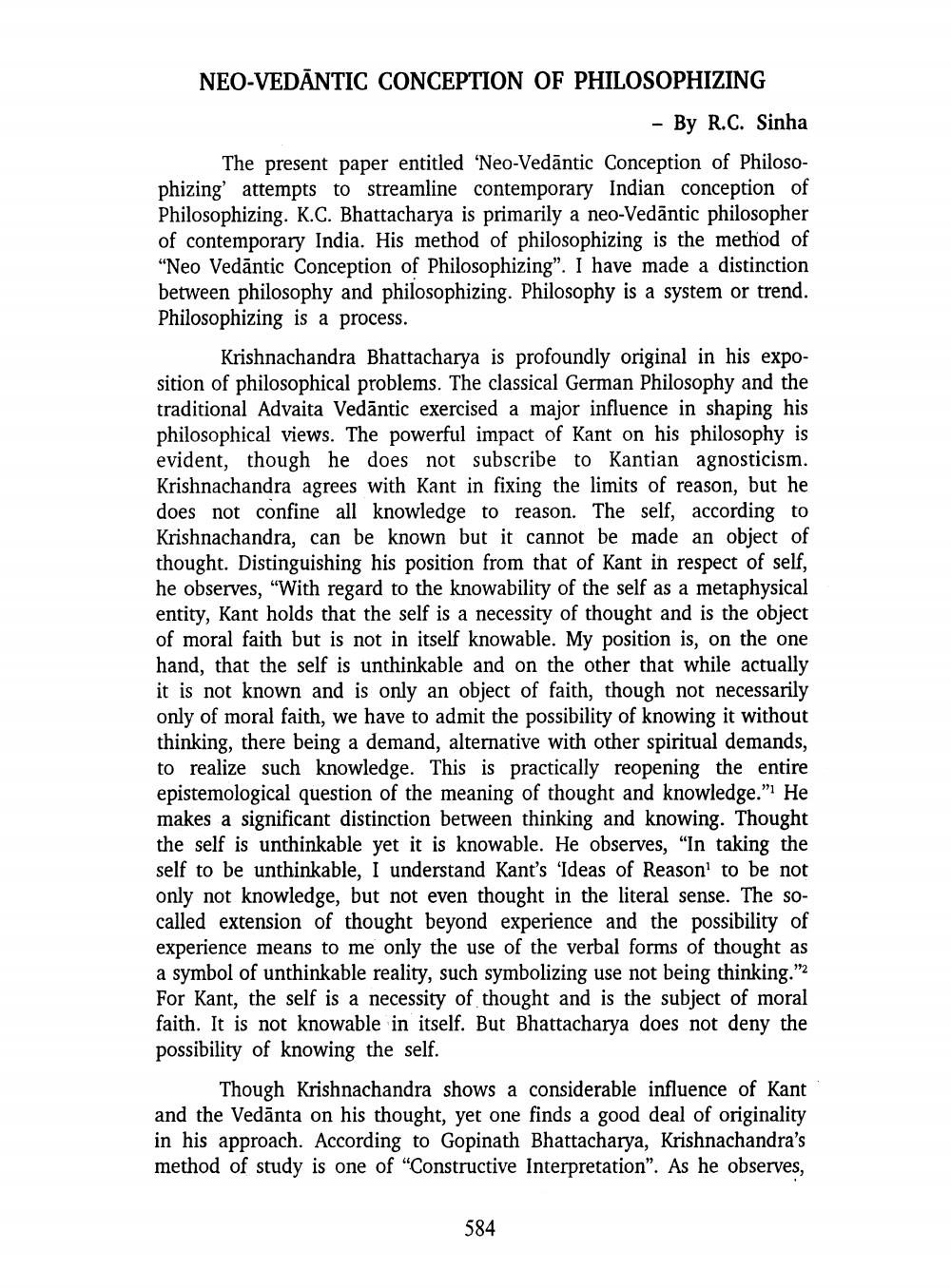________________
NEO-VEDANTIC CONCEPTION OF PHILOSOPHIZING
- By R.C. Sinha The present paper entitled 'Neo-Vedāntic Conception of Philosophizing' attempts to streamline contemporary Indian conception of Philosophizing. K.C. Bhattacharya is primarily a neo-Vedāntic philosopher of contemporary India. His method of philosophizing is the method of "Neo Vedāntic Conception of Philosophizing". I have made a distinction between philosophy and philosophizing. Philosophy is a system or trend. Philosophizing is a process.
Krishnachandra Bhattacharya is profoundly original in his exposition of philosophical problems. The classical German Philosophy and the traditional Advaita Vedāntic exercised a major influence in shaping his philosophical views. The powerful impact of Kant on his philosophy is evident, though he does not subscribe to Kantian agnosticism. Krishnachandra agrees with Kant in fixing the limits of reason, but he does not confine all knowledge to reason. The self, according to Krishnachandra, can be known but it cannot be made an object of thought. Distinguishing his position from that of Kant in respect of self, he observes, "With regard to the knowability of the self as a metaphysical entity, Kant holds that the self is a necessity of thought and is the object of moral faith but is not in itself knowable. My position is, on the one hand, that the self is unthinkable and on the other that while actually it is not known and is only an object of faith, though not necessarily only of moral faith, we have to admit the possibility of knowing it without thinking, there being a demand, alternative with other spiritual demands, to realize such knowledge. This is practically reopening the entire epistemological question of the meaning of thought and knowledge.". He makes a significant distinction between thinking and knowing. Thought the self is unthinkable yet it is knowable. He observes, “In taking the self to be unthinkable, I understand Kant's 'Ideas of Reason' to be not only not knowledge, but not even thought in the literal sense. The socalled extension of thought beyond experience and the possibility of experience means to me only the use of the verbal forms of thought as a symbol of unthinkable reality, such symbolizing use not being thinking." For Kant, the self is a necessity of thought and is the subject of moral faith. It is not knowable in itself. But Bhattacharya does not deny the possibility of knowing the self.
Though Krishnachandra shows a considerable influence of Kant and the Vedānta on his thought, yet one finds a good deal of originality in his approach. According to Gopinath Bhattacharya, Krishnachandra's method of study is one of "Constructive Interpretation". As he observes,
584




